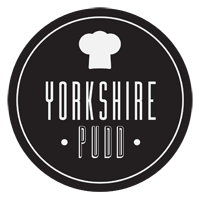Starting a food business can be an exciting and rewarding experience
Do you have a passion for cooking and want to turn it into a profitable venture? Starting a food business can be an exciting and rewarding experience, but it requires careful planning and execution to succeed.
With the right business recipe, you can turn your culinary dreams into a reality. This article will provide you with essential tips and tricks for starting a food business.
1. Develop a Unique Concept
The first step in starting a food business is to create a unique business concept that sets you apart from the competition. Your concept should reflect your brand’s personality and values.
Consider the type of food you want to offer, the ambience you want to create, and the overall experience you want to provide for your customers. A well-developed concept can be the key to your business’s success.
2. Create a Good Name for Your Business
Your business name should be memorable, unique, and easy to pronounce. It should also be reflective of your brand’s values and personality. A good business name can make a lasting impression on your customers and set you apart from your competitors.
Before choosing a name, make sure to research existing businesses in your area and avoid any potential trademark issues. Once you’ve settled on a name, ensure you register company name to make it official.
3. Conduct Market Research
Before launching your food business, it’s essential to conduct market research to determine if there is a demand for your product or service. This can help you determine the best location to open your food business. Research your target demographic, analyse your competitors and assess your local market’s viability.
Understanding your market’s needs and preferences can help you tailor your business to meet those needs and give you a competitive advantage.
4. Acquire the Necessary Licences and Permits
Starting a food business requires various licences and permits to operate legally. The requirements vary depending on your location and the type of food business you are starting. Some common licences and permits include food service permits, health department permits, business licences, and zoning permits.
Don’t forget that if you are planning on selling alcohol, you will need to gain a license for consumption on or off the premises or both. Suppose you are allowing patrons to drink in. In that case, you need to be licensed for the sale and consumption of alcoholic beverages, while if you are offering delivery before you bulk buy your Wooden Wine Boxes, ensure you are legally permitted to operate a food and alcohol delivery service.
Make sure to research the specific requirements in your area and obtain all necessary licences and permits before opening your business.
5. Develop a Strong Brand Identity
Developing a strong brand identity can help your food business stand out in a crowded market. Your brand identity should include your business’s logo, website, packaging, and social media presence. Your logo should be memorable and easily recognizable, while your website should be user-friendly and showcase your brand’s unique personality.
Consider hiring a professional designer to create a cohesive brand identity that reflects your business’s values and vision. To add a personalised touch, you can use a free drawing tool to visually convey your ideal logo to your professional designer. A strong brand identity can help establish trust with your customers and set you apart from your competition.
Conclusion
Starting a food business requires careful planning, execution, and a lot of hard work. Developing a unique concept, creating a good name for your business, conducting market research, and acquiring necessary licences and permits are crucial steps in setting your business up for success.
With the right business recipe and a bit of determination, you can turn your culinary dreams into a profitable and rewarding reality. Remember to be creative, persistent, and passionate about your brand, and you’ll be on your way to culinary success.










